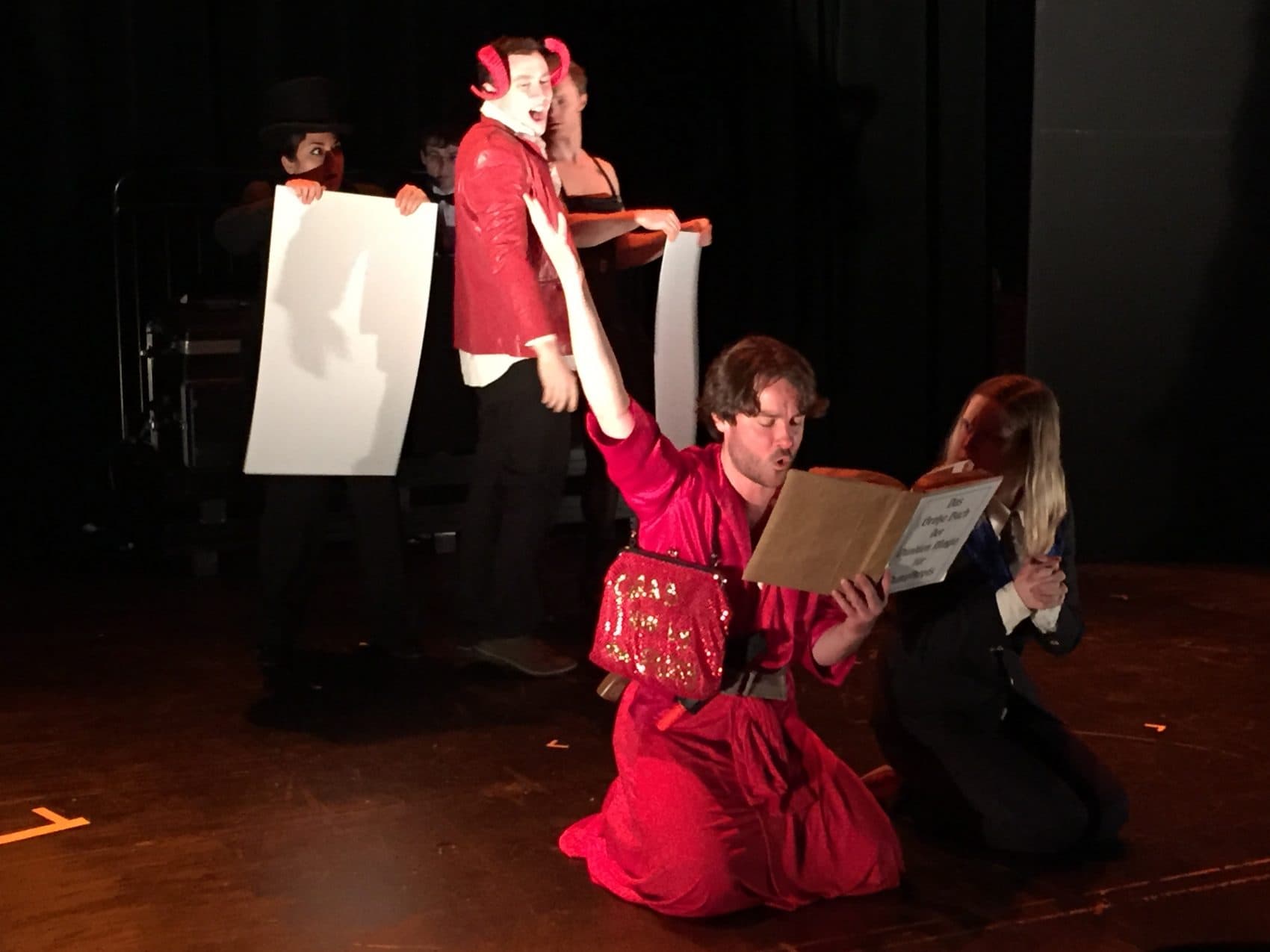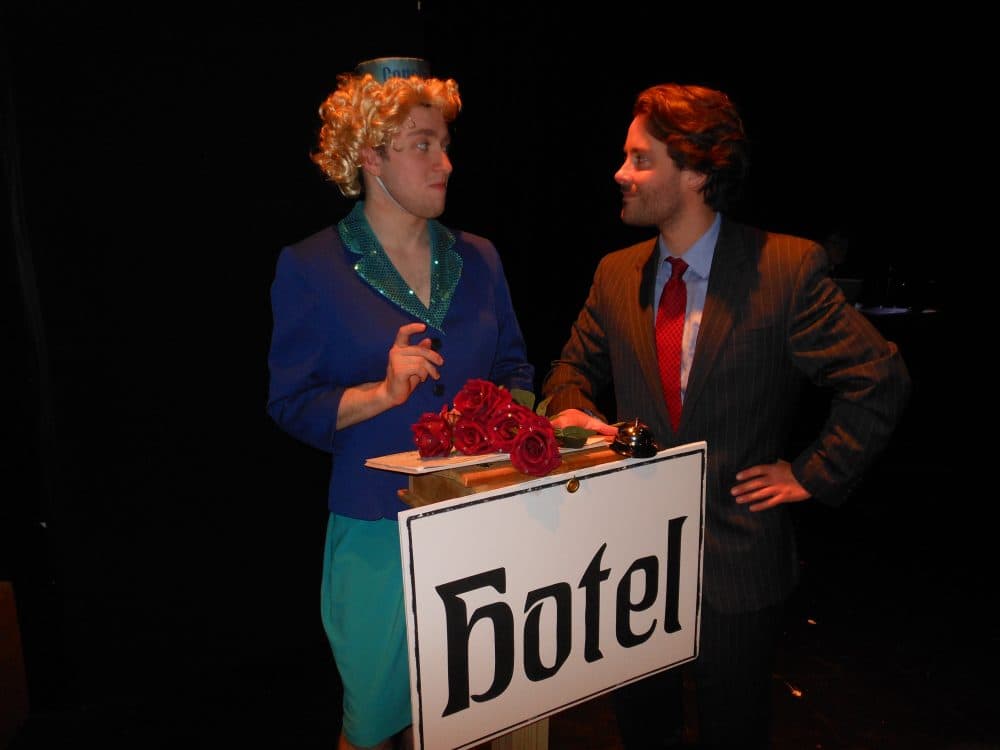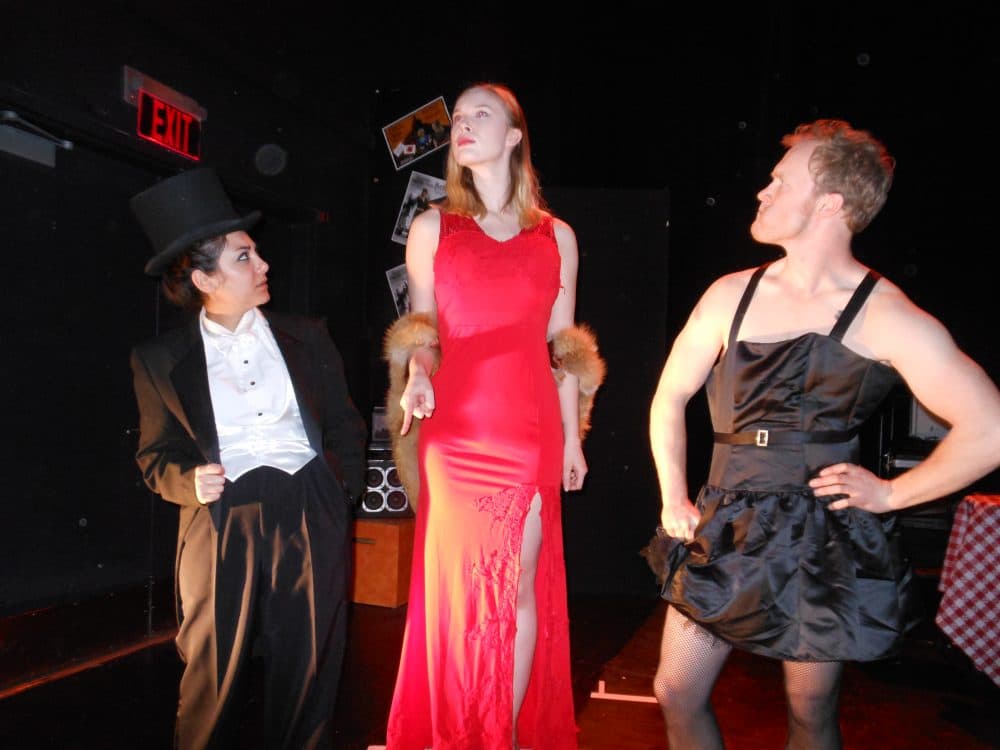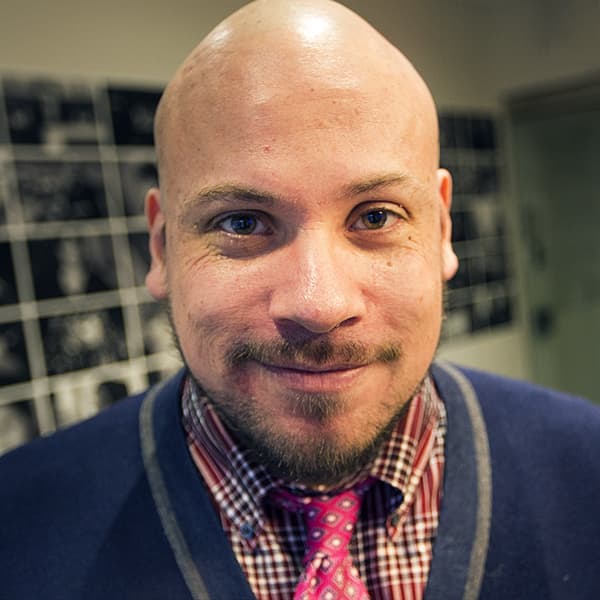Advertisement
Review
'Berlin' Takes Pseudo-Liberalism To Task

There's a punk rock edge to "Berlin." Much of the play, seen in its world premiere production by Office of War Information (Bureau of Theatre) through May 12, seems deliberately concocted to offend. This is a bold choice.
The story, such as it is, tracks in absurdist fashion the misadventures of an American on vacation in Berlin and the unnamed sex worker — who at one point says she is 12, though she seems to be played as an adult — accompanying him.
Be careful: According to my reading of playwright Shaoul Rick Chason's pointed manifesto, posted online, if you're offended by elements of this piece that means you are a "pseudo-liberal" beholden to "neo-Puritanical values" and surely in need of a good cage rattling.
Yet to get through the play's provocations, which include a series of rape jokes, requires extreme cynicism. The playwright's point of view toward these characters is hard to discern, and he makes exhausting demands on the audience's generosity with the benefit of the doubt.

The best thing going here is the cast members, who deliver full commitment. Eric McGowan is Howard, the smooth-talking American gentleman. Erin Reilly is the escort (and later, a very funny demon). Patrick McCarthy plays a series of tertiary comic roles but, in the play's sudden lurch toward meta-theatricality near the end, is promoted to the status of third main character and given the major speech of the night, in which his performance reveals even more colors. Serving the role of palate cleansers, Cullan Powers and Donya Yeganeh introduce each scene with quietly appealing charisma.
McGowan and Reilly are tasked with tap dancing through chunks of text in a series of extended tête-à-têtes. The default mode is of one or the other actor plowing through a quick-paced monologue while the other expresses attentiveness and support. They stick every landing throughout a pair of admirable and indefatigable performances. It's a pleasure to see them work together.
Director Pete Riesenberg smartly keeps things moving at full throttle, and cleverly places stage manager Nathan Rigione at the center of the action while working sound and light cues, as if to acknowledge the deliberate artifice at play.
The episodic piece — whose full title is "Berlin or, The Part of You That Wants It: A Musical Comedy Love Story (Written by Accident)" — is set at the pitch of slapstick. There's a bank robbery. The escort makes a speech that inspires a revolution. People keep shooting and killing each other with a deliberately cartoonish lack of menace. We get periodic updates on the downfall of society and at some point the people's revolt segues into a demonic invasion. Along the way there is lots of purposeful gibberish, in word and deed, which gets some laughs from the brute force of gleefully forsaking any sense of internal consistency in this world.
In his playwright's note, Chason describes the play as a series of "irreverent portrayals of comic vice specifically designed to offend and upset, not for the purpose of supporting oppression, but to highlight the role of pseudo-liberalism in the plight of the oppressed and to propose radical open-mindedness of moral complexity as an antidote to the vice of anti-intellectual oppression."

He also stipulates that "the play's not trying to be political, it just uses political issues to try to be honest and confrontational and funny for the sake of dramatic engagement with a locus of political yearning."
When you sift through that word salad and engage with this play in good faith, its thesis appears to be that contemporary taboos surrounding things like rape are merely matters of changing social fashion. In a brave moment of vulnerability, the playwright asserts his right to tell this particular story. Yet for all the throat-clearing (you want to hand him a lozenge), the play's essential insight — that moral relativity is a concept that exists — is not the revelation he seems to think it is.
In the late going, the playwright gives up on the pretense of filtering his point through the theatrical devices of character and plot. In a dizzying twist, he puts his own voice in the mouth of one of the characters, to make a jargon-filled speech about "PC culture" directly to the audience. "Isn't that kind of the whole point of what the playwright is trying to say here?" he has a character ask onstage, apparently not trusting the audience to get the message without an answer key.
Yet the narrative intrusion is the most deeply felt and honest moment in the show. It feels like the reason the playwright wanted us all together in the same room in the first place. This suggests he may be better served exploring this challenging subject matter through a different performance format, perhaps entirely in direct address.
I'm glad that fearless, combative theater like this exists. But as is, "Berlin" feels like a delivery vehicle for talking points — recited by someone who refuses to let you get a word in edgewise.
Office of War Information (Bureau of Theatre)'s production of "Berlin" runs through May 12 at the Central Square Theatre.
